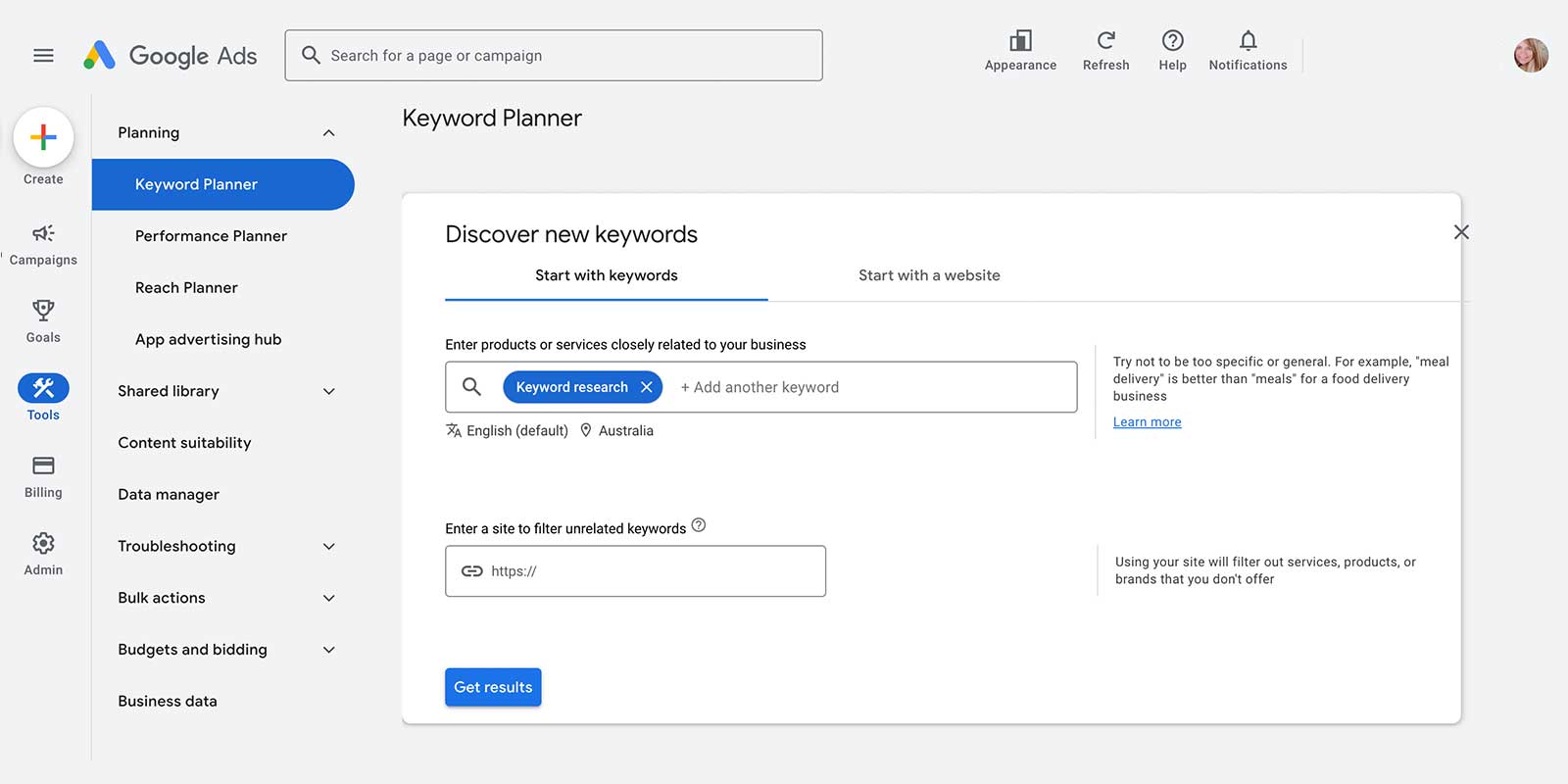How do you consistently stay ahead in the competitive world of SEO? Imagine you have a website you're passionate about and want to reach as many people as possible.
Keyword research, the bedrock of your online presence, is a crucial aspect that every website owner and digital marketer should be well-informed about.
Incorporating effective strategies into your keyword research approach, including assessing keyword difficulty, ensures your content shines, paving the way for increased visibility and promising growth.
Understanding Keyword Research
Keyword research is the cornerstone of an effective SEO strategy, shaping how your content connects with your audience.
Firstly, you must recognise keyword research as a pivotal process that demands attention, creativity, and analysis, including understanding search volume as a fundamental metric. It's about identifying words and phrases potential visitors use when searching online. Unearthing the right keywords allows you to align your content with user intent, enhancing visibility and the relevance of the content you present on your website.
Importantly, this exercise requires balancing relevance and search volume. By understanding what your audience is interested in, you can tailor your content to match your audience's interests while strategically using keywords that increase your site's searchability.
Ultimately, embracing keyword research involves a dedicated exploration of potential search terms, crafting these into an engaging content strategy, and using them to guide your SEO efforts. This enlightening approach will empower you to connect more effectively with your target audience, nurturing relationships and fostering a remarkable online presence.

Importance of Keywords in SEO
In the world of SEO, keywords are more than just words; they are the bridges that link your target audience to your content and services.
Words and phrases potential customers type into search engines, such as Google, reflect their queries. Integrating these into your website's content allows search engines to connect users to you. Effective keyword usage enhances your site's visibility and boosts your domain authority, positioning you as relevant and authoritative.
Understanding search trends, search volume, and keywords significantly guides your focus on producing resonant content. Understanding and conducting keyword research provide insight into what your potential customers are searching for, leading to a more engaging and fulfilling user experience.
Thus, recognising keywords' indispensable role in SEO can revolutionise your digital strategy. By prioritising effective keyword research and optimisation, you set yourself on a path of achieving an optimised and heightened online presence, securing more significant opportunities for interaction and engagement with a broader audience.

Identifying Your Target Audience
Know your audience intimately.
Understanding your target audience is pivotal to effective keyword research, as analysing search volume helps determine the popularity and relevance of potential keywords. By honing in on who needs your products or services, you can tailor your content to match their specific interests, needs, and queries. Moreover, getting to the root of their preferences and challenges allows for more personalised engagement and ensures your brand connects meaningfully.
Engage with their preferred platforms regularly.
The key lies in selecting phrases that align. If your audience uses certain expressions to describe their pain points, incorporate these into your content. This way, you maintain relatability and create user-centred narratives.
The most successful marketers leverage sophisticated audience analysis to inform comprehensive keyword strategies, fostering robust connections and building trust. When you prioritise understanding your audience in 2025 and beyond, you're setting the stage for long-term success. Leverage analytics tools to delve deeper into user behaviours and craft content that truly resonates with those seeking your solutions.

Brainstorming Initial Keyword Ideas
Embarking on keyword research requires a creative mindset that encourages expansive thinking. It would help if you started by opening your mind.
Consider stepping into the shoes of your ideal audience. What words or phrases will they likely type into a search engine when seeking solutions or information related to your niche? Jot these ideas down, no matter how varied they seem.
Next, use a whiteboard or a mind-mapping tool to visualise these concepts. Create clusters of related terms to explore broader themes and niche-specific topics. This approach encourages a flow of ideas and helps avoid tunnel vision.
In addition, try asking peers or industry experts for insights into trending topics or emerging jargon. These discussions can offer invaluable input for effective keyword research. They can trigger unexpected keyword ideas and provide an external perspective that enriches your brainstorming process.
Remember, initial brainstorming is your launching pad. It is essential to stay open, curious, and relentless in pursuit of diverse keywords.

Using Keyword Planning Tools
Utilising keyword planning tools is essential in crafting an effective keyword strategy that can significantly boost your SEO efforts. These tools, like Google Keyword Planner, SEMrush, and Ahrefs, provide a wealth of insights into the search volume, keyword difficulty, and competitiveness of potential keywords.
This knowledge enables you to make informed decisions about which keywords, based on keyword research, will drive the most traffic and conversions. Embrace these tools as your SEO allies.
Exploring Free and Paid Tools
When delving into keyword research, various tools can dramatically enhance your strategy. Both free and paid options offer unique benefits you can leverage for success.
Free tools like Google Keyword Planner and Ubersuggest are valuable for foundational research, providing insights into search volumes and related terms without initial cost. Paid options like SEMrush and Ahrefs delve deeper, offering comprehensive data analytics and competitor analysis.
SEMrush provides diverse SEO tools tailored to enhance keyword research efficiently and effectively.
Your choice between tools largely depends on your budget and specific needs. Free tools are excellent for beginners or smaller projects where initial insights are valuable. Conversely, paid tools are ideal for elevating their strategy, offering in-depth analysis and trends not typically accessible through free resources. Embrace the power of these tools to advance your SEO journey.
Analysing Tool Data Effectively
Effective data analysis is crucial in keyword research. It's the key to understanding search trends and competitor behaviour and keeps you informed and knowledgeable in your field.
- Identify Reliable Metrics: Focus on search volume, competition level, and keyword difficulty.
- Use Multiple Sources: Gather data from various tools to ensure comprehensive insights.
- Spot Patterns and Trends: Look for recurring themes to identify potential keyword opportunities.
- Benchmark Against Competitors: Study competitor performance to discover market gaps.
- Refine Strategy Continuously: Adjust your approach as new data emerges and trends shift.
Delve deeply into the metrics most aligned with your objectives, ensuring relevance and accuracy in your insights.
Mastering tool data analysis can transform raw information into actionable strategies, empowering you to take control and confidently advance your SEO efforts.

Evaluating Keyword Relevance
To succeed in keyword research, evaluating keyword relevance can significantly impact your search rankings and strategy.
First, consider the context in which a keyword will be used. By analysing the searcher's informational or transactional intent, you can ensure your content aligns with their needs. Remember that a relevant keyword is not just about high search volumes; it's about connecting your audience with the right message, ultimately achieving meaningful engagement.
Additionally, think about relevance as a dynamic factor of your strategy. As industry trends and audience interests evolve, so should your evaluation criteria. Continuously measuring the significance of your chosen keywords will keep your content fresh and targeted, making your efforts adaptive to the ever-changing landscape.
Finally, use qualitative insights to validate your keyword relevance decisions. Explore platforms like social media channels and forums, which provide rich perspectives on what your audience truly cares about. This proactive approach allows you to refine your keywords precisely, setting the foundation for content that naturally resonates and fostering valuable interactions and improved search outcomes.

Understanding Search Intent
Grasping the concept of search intent is crucial for your keyword research strategy. It's all about understanding what users expect to find when they enter a particular query. By aligning your content with these expectations, you ensure it reaches your audience and meets their needs.
Search intent generally falls into three categories: navigational, informational, and transactional. Each plays a vital role in keyword research and shaping how you approach keyword selection.
Navigational intent implies the user searching for a specific website or page. Identifying these can help ensure that your site is easily found by those who already know your brand.
Informational intent indicates a user's desire to learn more about a topic. Capturing these queries with in-depth, well-researched content can position your brand as a trusted source of information.
Transactional intent typically accompanies users ready to purchase or commit to a conversion. Optimising for these keywords can directly impact your business's bottom line by driving sales or leads.
Ultimately, the aim is to anticipate and fulfil your audience's needs at every stage. You're setting the stage for improved engagement and conversion rates by tailoring your keyword research to their search intent.

Analysing Competitor Keywords
Analysing competitor keywords gives you insight into how others attract traffic and find success online.
You can discover the strategies driving their visibility by consistently examining competitor keywords using tools like Google Keyword Planner, SEMrush, or Ahrefs. This methodology offers you the keywords they are ranking for and uncovers opportunities your competitors might have overlooked, presenting a chance for you to fill the gaps with unique content.
Additionally, conducting thorough keyword research alongside these insights can lead to a targeted expansion of your keyword strategies. By interpreting these patterns, you may identify niches where the competition is less fierce, thus tailoring your efforts towards audiences yet untapped by your rivals.
Moreover, taking advantage of competitor keyword analysis enriches your ability to position strategically within your market, ensuring you remain competitive in a constantly shifting landscape. With this knowledge, you'll have actionable data to innovate and continuously refine your content strategies for maximum impact.
Long-Tail Keywords Opportunities
Long-tail keywords offer incredible advantages for your keyword research and overall SEO strategy. They allow you to capture narrower yet highly targeted search intent.
They hold less competition, making them easier to rank for.
Focusing on longer phrases or combinations can serve as a gateway to specific audiences. These keywords tend to attract visitors ready to convert, investing time in creating content that answers detailed inquiries, guides, or reviews of niche topics.
With long-tail keywords, you harness the power of capturing the highly relevant traffic of users who are likelier to engage or purchase. Knowing how to integrate these into your content is vital for SEO success. For example, incorporating "how to effectively use long-tail keywords" can exemplify this strategic approach.
Implementing Keywords into Content
Incorporating keywords strategically requires a fusion of creativity and precision. Begin by understanding your audience's preferences and search behaviours. Then, seamlessly weave your chosen keywords into headings, subheadings, and body text naturally, ensuring they enhance rather than disrupt the reader's experience.
Balancing Keyword Density
Effective keyword research unlocks the potential for your content to rank prominently and connect with your target audience.
To strike the right balance, you must understand that a keyword's frequency within your content can influence search engine rankings. Overuse, known as keyword stuffing, can irritate readers and jeopardise your standing with search algorithms. Instead, aim for a moderately scattered deployment that reads naturally.
Interestingly, there is no universal formula for the perfect keyword density. For most success, consider integrating keywords so they complement the overall message. Round out your content with varied phrases and synonyms to maintain reader engagement while demonstrating the relevance of your topic.
Furthermore, an optimal strategy includes using keyword variations to subtly reinforce your central theme. This makes the content feel organic and reader-focused and helps search engines pinpoint your content's central ideas. By following these practices, your content will be well-positioned to resonate with your audience effectively.
Monitoring and Adjusting Strategy
Optimal keyword research is not a one-time event but a continual process requiring your attention.
- Analyse Performance: Regularly review the performance of your chosen keywords using analytics tools.
- Evaluate Trends: Stay updated with industry trends to identify emerging keywords that align with your business goals.
- Refine Keywords: Based on performance data, adjust and refine your keyword list to enhance relevance and reach.
- Optimise Content: Incorporate new, high-performing keywords into your existing content to boost visibility.
- Iterate the Process: Continuously repeat this cycle to maintain a competitive edge in search engine rankings.
You can determine which keywords drive significant traffic and conversions by monitoring performance metrics.
Making these adjustments ensures your strategy remains dynamic and responsive to changing search behaviours, ensuring sustained success.

And that's a wrap!
Embarking on a journey of keyword research is akin to unlocking the doors to SEO success. The path begins with understanding the core principles behind keyword relevance and search intent, leading you through competitor analysis and the invaluable power of long-tail keywords. This strategic exploration is not a fleeting task but a continuous commitment to staying relevant and engaging in an incessantly evolving digital landscape.
As you refine and implement these best practices, you'll find that your digital presence does more than exist; it thrives. By embracing keyword research with enthusiasm and precision, you foster deeper connections with your audience, meeting their needs precisely when and where they arise. This empowers you to attain higher search engine rankings and build a brand narrative that resonates and endures.
Remember, your success in keyword research is driven by persistence and adaptability. Stay curious, keep refining your approaches, and most importantly, maintain your focus on your audience's ever-changing desires and behaviours. In doing so, you'll carve out a notable space for your brand online, enabling sustainable growth and accomplishment.
So, go forth with confidence, turn insights into actions, and let the art of keyword research propel you towards your digital aspirations. Your potential is vast, and with these best practices, it is only a matter of time until you achieve the visibility and engagement you aim for.
Ready to elevate your SEO strategy? Start implementing these tips today and watch your online presence soar! Let us know how it goes, or reach out for more guidance—we’re here to help you succeed.







